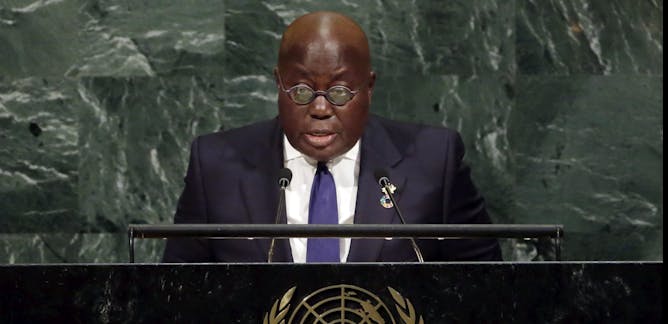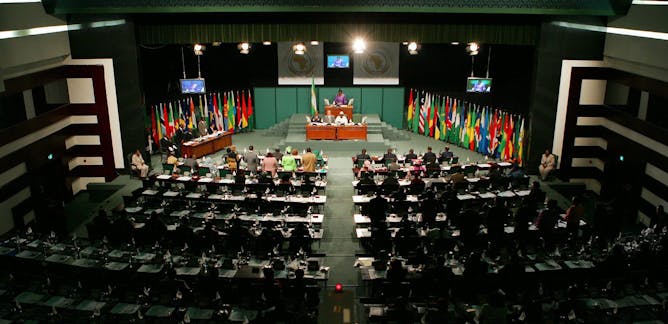|
Today is Africa Day, commemorating the establishment of the Organisation of African Unity (OAU) in 1963. The umbrella body, which was later renamed the African Union, was set up as part of the continent’s quest for unity, independence and liberation from colonial powers. To mark the day we are publishing articles on some of the big issues facing African countries written by academics steeped in knowledge about the continent.
Part of the continent’s drive to greater integration was meant to have been driven by the Pan African Parliament which was set up in 2004. But, as Babatunde Fagbayibo writes, the parliament is dysfunctional and mired in accusations of corruption. On a positive note, Muchazondida Mkono explains why social media offers a powerful platform for telling stories with a positive turn, opening the door to counteracting decades of Afro-pessimism. And Alan Christoffels outlines a number of programmes and initiatives that are building the continent’s science muscle.
|
|
|

Alan Christoffels, University of the Western Cape
There are several projects and initiatives that offer hope amid all the bad news about African science.
| |

Muchazondida Mkono, The University of Queensland
Social media presents a powerful platform for creating multiple stories about Africa.
|

James Kwateng-Yeboah, Queen's University, Ontario
Ghanaians respond positively to financial appeals from churches compared to how they respond to paying taxes. Here's how, and why, Ghana's government should learn from religious groups.
| |

Babatunde Fagbayibo, University of South Africa
Reports of profligacy by the leaders of the Pan African Parliament could further diminish its legitimacy, which is already being questioned .
|
|
|
Business + Economy
|
-
Alberto Cardaci, Università Cattolica del Sacro Cuore - Catholic University of Milan
Under some circumstances, people may feel wealthier than they actually are and this makes them psychologically more prone to increase their spending, as well as their borrowing.
|
|
Health + Medicine
|
-
Samuel Blouin, Université de Montréal
Recent stories in the media highlight the idea of suicide tourism to Switzerland. But what does that mean? How is the Swiss view of assisted dying different from the Canadian one?
|
|
Politics + Society
|
-
Paul Duffill, University of Sydney
The international condemnation of Israel's violent response to the Gaza protests shows how misplaced its "Brand Israel" campaign has been.
-
Fiona de Londras, University of Birmingham
The almost total ban on abortion in Ireland does not work to protect women's health.
|
|